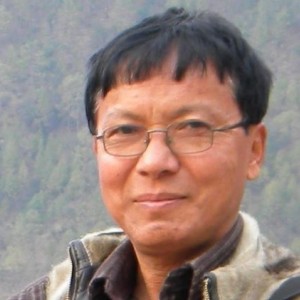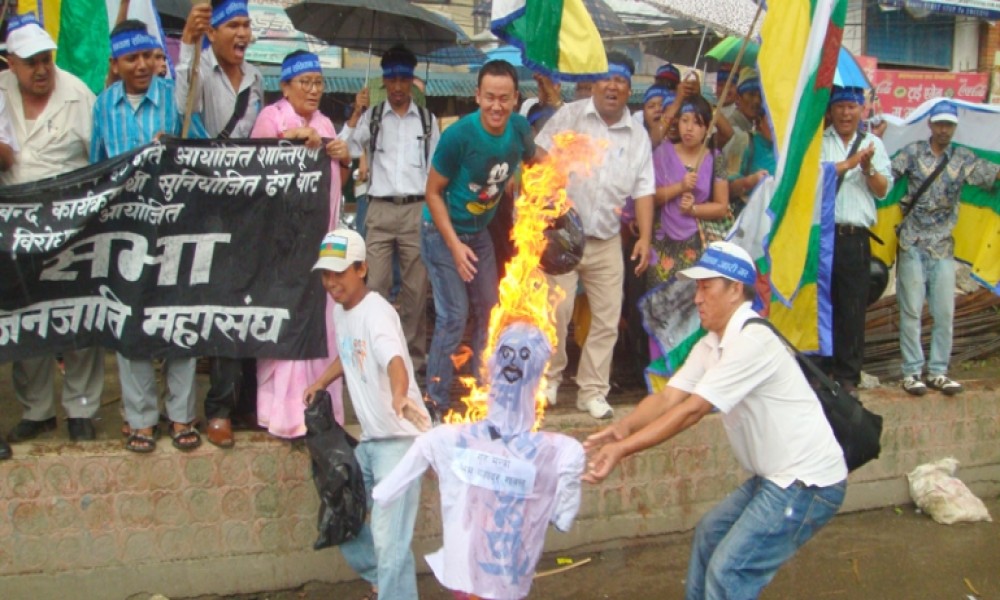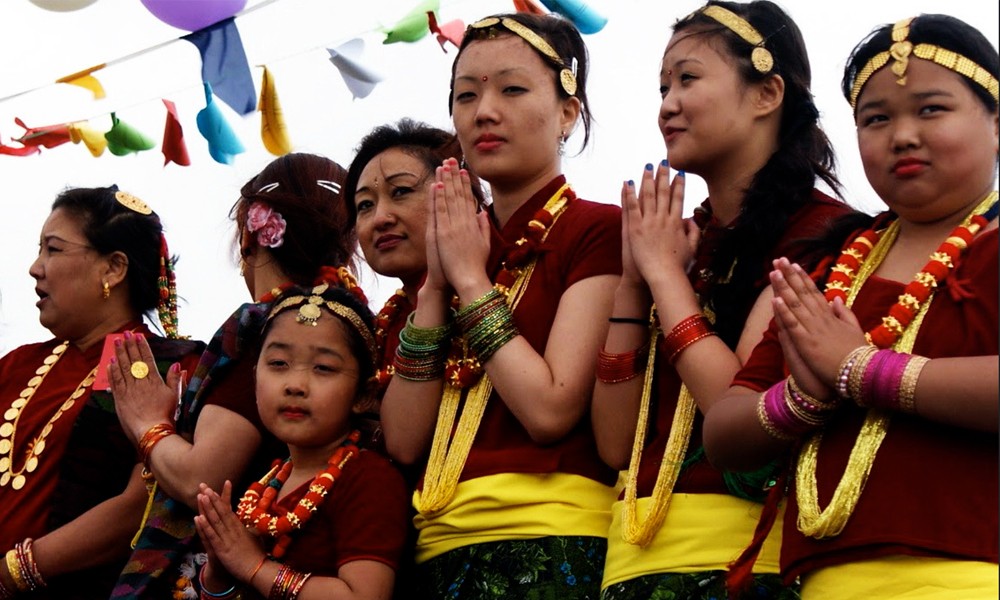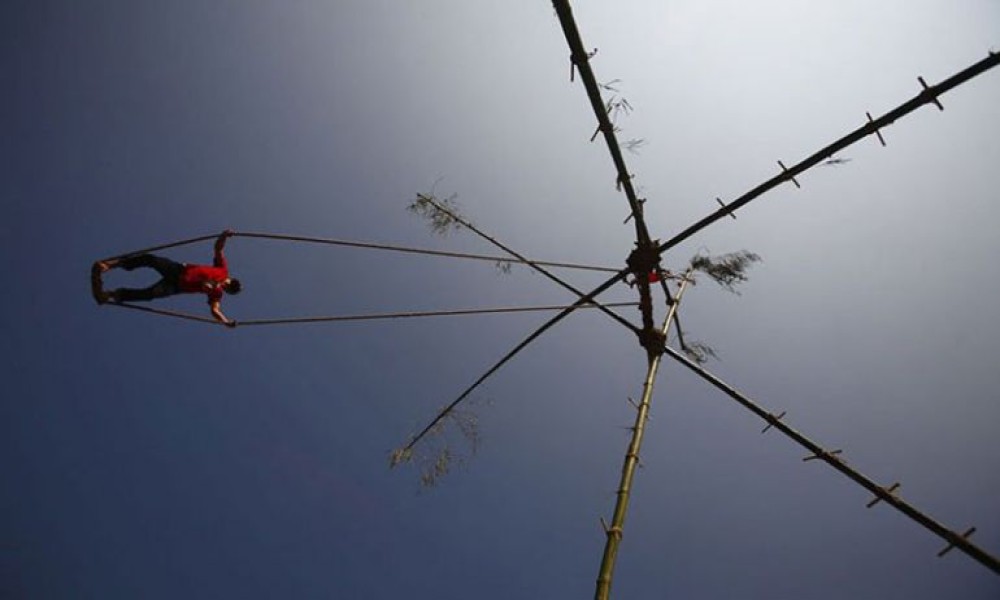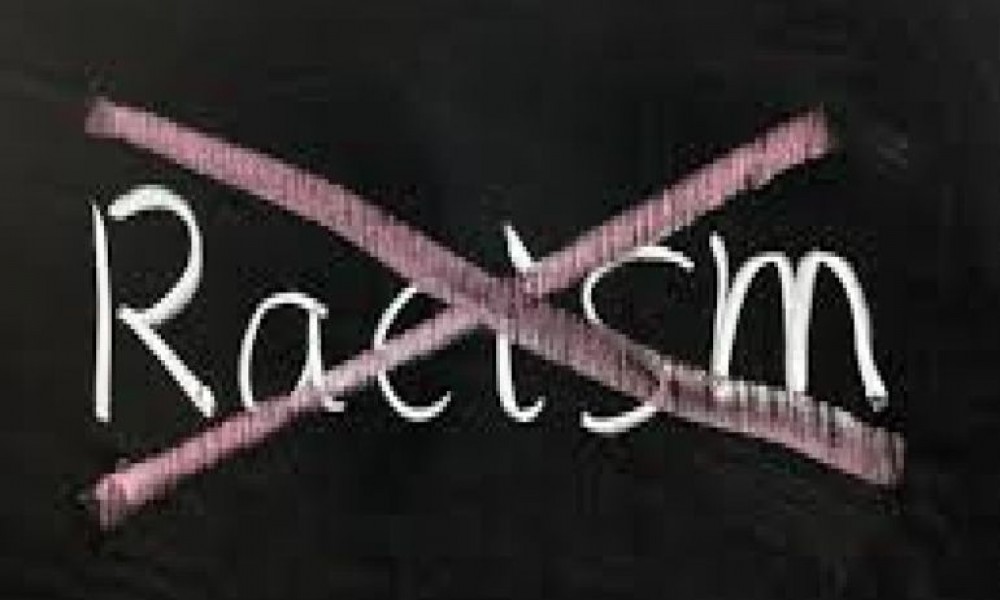I have always been doing what I can for the socio-political movement of Aadivasi/Janajati people. I have always motivated them to stand firm and united and fight for our common cause.
Today, the Aadivasi/Janajati movement appears split between two forces – one by the Nepal Federation of Indigenous Nationalities (NEFIN) and other by human rights activist Padma Ratna Tuladhar. The ruling class has always adopted 'divide and rule' policy. So, it does not come as a surprise that our movement is now fractured.
Though divided, both forces share the same cause: to ensure socio-political rights of Aadivasi/Janajati people. Both are for rights to self-determination, self-rule, autonomy and preservation of mother tongues. Only their ways are different. As an umbrella organization, the NEFIN is supposed to be the voice of all ethnic and indigenous groups. But, it has failed to reach out to all Aadivasi/Janajati people. Today, only some people are active in the central and district committees of the NEFIN. There are NGOs, political parties, social organizations and media exclusively run by and for Indigenous Peoples. The NEFIN has failed to bring all of them under its wings.
In 2007, the NEFIN spearheaded a ferocious movement that led to a 30-point agreement between it and the government. Since then, political parties are trying to seize the NEFIN by helping their own cadres to grab major executive posts of the organization. Their motive is clear: dominate the NEFIN, weaken it and avert possible strikes and protests by indigenous communities in the future.
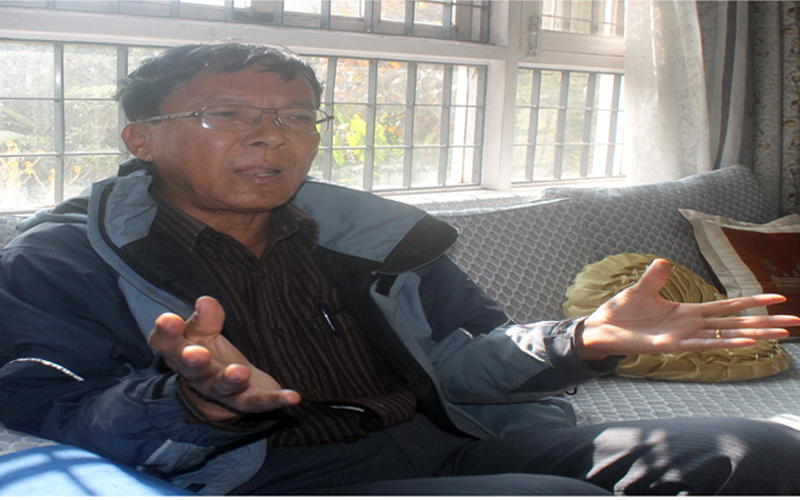
Today, the NEFIN's president and general secretary are pro-NC and pro-CPN (UML) respectively. Other central committee members must also have affiliations with various political parties. They naturally tend to protect interests of their own political parties.
For example, the Supreme Court (SC) has ordered the government to amend Election Commission Act-2007 and Constituent Assembly Regulations-2008 in line with the International Labor Organization (ILO) convention no-169, which Nepal is a party to. The SC's order was a response to a writ petition filed by several organizations of Indigenous Peoples, including Lawyers' Association for Human Rights of Nepalese Indigenous Peoples (LAHURNIP). But, the government has ignored the SC's verdict and the NEFIN has not taken up this issue strongly. If it had a strong and independent leadership, the NEFIN would have forced the government to honor the SC's verdict.
The government has ignored the SC's verdict and the NEFIN has not taken up this issue strongly. If it had a strong and independent leadership, the NEFIN would have forced the government to honor the SC's verdict.
Similarly, the SC has ruled that independent personalities representing ethnic and indigenous communities, which are not represented in the CA, be appointed as CA members in the 26 quotas. But, the SC's ruling has been ridiculed by appointing the NEFIN's general secretary as a CA member.
Recently, the NEFIN president Nagendra Kumal has also been appointed as a CA member under the same 26 quotas. It is a ploy by the NC and the UML to weaken the Aadivasi/Janajati movement. Unfortunately, the NEFIN's leadership is now at the hands of those NC and UML leaders who have time and again accused this organization as being a secessionist.
When their contributions to the Aadivasi/Janajati movement are taken into account, neither Kumal nor Bhote, both now CA members, have done as much as Gore Bahadur Khapangi did. Khapangi had taken the agendas of Indigenous Peoples to the grass-root level. Even now, if Indigenous Peoples living in rural villages know any indigenous leader, it is none other than Khapangi. Former king Gyanendra knew it. So, he made Khapangi as his cabinet member. He thought that he would win over all Indigenous Peoples by offering a ministerial berth to Khapangi. But, Khapangi did not do much. He did not rise above his personal interests. He ended up tarnishing his own image. Finally, even the monarchy was overthrown.
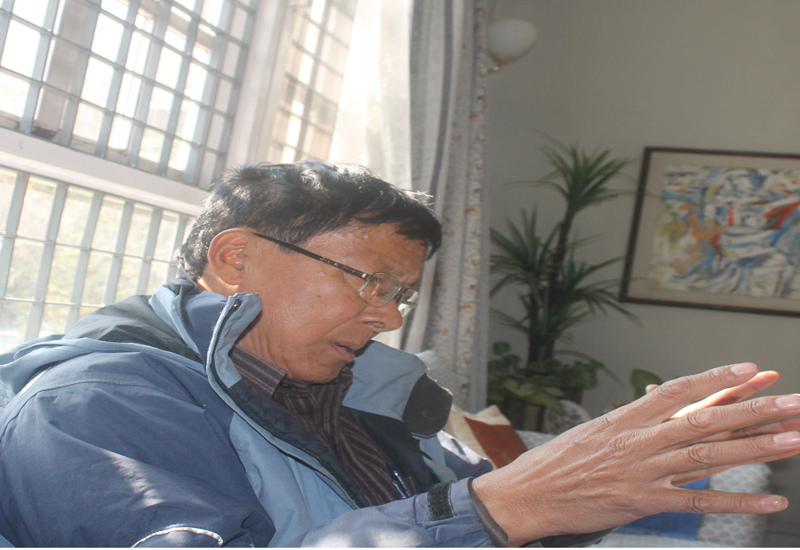
The way the monarchy was toppled after Khapangi joined the king's cabinet, Kumal and Bhote's entry into the CA as lawmakers might lead to the downfall of the Hill-Hindu state.
Today, we are in a do-or-die situation. We need a unified and nationwide movement. Fragmented protests will not suffice. But, there are positive signs: all oppressed and marginalized forces are coming under the same alliance. Only Dalits are yet to join the alliance. And it looks unlikely as they politically divided.
There are news reports that 414 lawmakers have collected signatures urging the NC and the UML to pass the new constitution through the majority voting. But, will all of them vote for the NC-UML proposal? Will they really forget which ethnicity they belong to? Tharu lawmakers have formed a Caucus group in the CA. Rai and Magar lawmakers are also forming their own Caucus groups in the CA. So, it is not certain if all the 414 lawmakers will endorse the NC-UML proposal in the decisive hour.
I do not understand why the NC and UML brag about their numeric strength? In the first CA, as many as 418 lawmakers had signed for identity-based federal units. Barsha Man Pun and Pasang Sherpa are still around to tell us what had actually transpired. At that time, the NC and UML stood against the majority voting. Now, they are pushing for the majority voting. Is not it an irony?
Compositions of first and second CA are different. Drawing experience from the first CA, the NC and the UML did not field those of their candidates who would support the idea of identity-based federalism. They did not choose pro-identity voices from the Aadivasi, Janajati, Madhesi, Dalit and Muslim communities under the Proportional Representation (PR) system, either. It was reported by the media that only those Aadivasi, Janajati, Madhesi and Muslim candidates who promised their parties that they would not support identity got tickets. They cannot listen to the voice of their conscience. They cannot rise above interests of their parties.
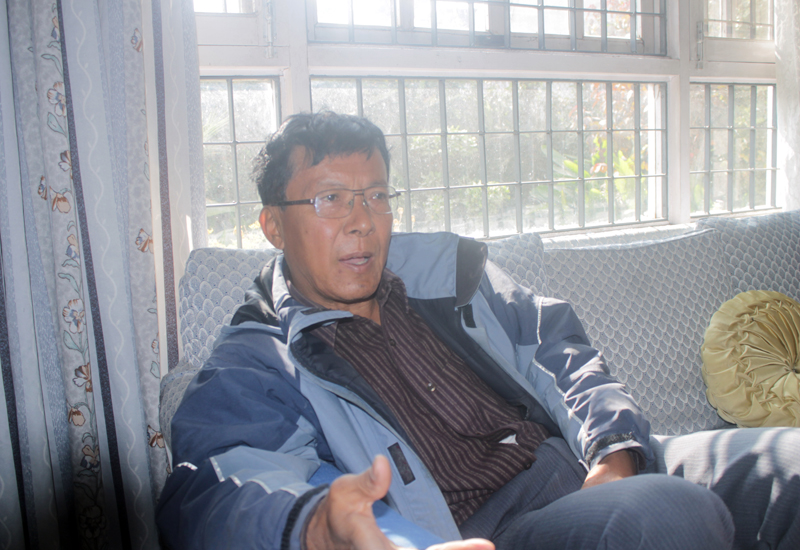
Political forces are now getting sharply polarized. The Brahminist-patriarchal state does not wan Madhesi, women, Dalit, Aadivasi, Janajati and Muslims to enjoy their rights. They want to maintain status-quo. They have even forgotten that constitution writing is part of the on-going peace process. But, the oppressed and marginalized communities want to live without a constitution rather than with a constitution that does not address their political agendas. Instead, they want a new movement. But, they are divided into two types. First, they say the present CA cannot write a constitution in their favor. So, they want to launch protests immediately. Second, they say they should allow the NC and the UML to write whatever constitution they like. They think they can spearhead ferocious protests when the NC and the UML constitutionally exclude them in the new statute.
If the NC and the UML pass the constitution by using their numeric strength, a new movement is unavoidable. If the NC and the UML neglect others, it will be the beginning of their downfall.
The Aadivasi/Janajati movement is yet to reach the grass root level. So, the downtrodden Indigenous Peoples have yet not understood why they are living in such a deplorable condition. They are concerned about only their everyday problems. They do not understand the regressive state is the reason behind their pathetic lives.
Identity based federalism is in itself not a big thing. What the oppressed and marginalized communities want is their rights that have been recognized by the international community and conventions. Naming federal units as Limbuwan, Magarat is not sufficient in itself.
The Aadivasi/Janajati movement is yet to reach the grass root level. So, the downtrodden Indigenous Peoples have yet not understood why they are living in such a deplorable condition. They are concerned about only their everyday problems. They do not understand the regressive state is the reason behind their pathetic lives.
Even the second CA has endorsed decisions by the first CA. The first CA had agreed on either 14 or 10 federal units. But, the NC and the UML are not backtracking from what the first CA had decided. It means the NC and the UML are inviting another conflict. More than 13,000 people were killed in the 10-year-long Maoist war. But, if there is another conflict between the Hill and Tarai people or the Brahmins and Janajati, 13,000 people can be killed in just one night. It is high time the NC and the UML realized it.


